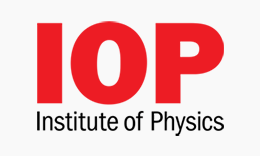Physics with Planetary and Space Physics Code F364 Attend an Open Day Attend an Open Day Clearing places available – 0800 121 40 80
Apply NowYou are viewing this course for September start 2024
Key Facts
F364-
UCAS Tariff
120 - 112
-
Course duration
3 years
Further details on entry requirements
Apply NowPhysics with Planetary and Space Physics, at Aberystwyth University, provides you with a fundamental core of Physics alongside a detailed exploration of the Physics of the Solar System and an overview of Modern Astronomical Science.
The nucleus of mainstream Physics, alongside our supportive learning environment, ensures flexibility in further study or employment after graduation, and provides the necessary background for the specialist modules.
Course Overview
Modules September start - 2024
Please note: The modules listed below are those currently intended for delivery during the next academic year and may be subject to change. They are included here to give an indication of how the course is structured.
| Module Name | Module Code | Credit Value |
|---|---|---|
| Algebra and Differential Equations * | PH16210 | 10 |
| Calculus * | MP10610 | 10 |
| Dynamics, Waves and Heat * | PH10020 | 20 |
| Electricity, Magnetism and Matter * | PH11120 | 20 |
| Further Algebra and Calculus * | MP11010 | 10 |
| Laboratory Techniques for Experimental Physicists and Engineers (20 Credits) * | PH15720 | 20 |
| Modern Physics | PH14310 | 10 |
| Physics Career Planning and Skills Development * | PH12910 | 10 |
Options
| Module Name | Module Code | Credit Value |
|---|---|---|
| Astronomy | PH18010 | 10 |
| Communication and Technology | PH19510 | 10 |
| Energy and the Environment | PH19010 | 10 |
| Module Name | Module Code | Credit Value |
|---|---|---|
| Electricity and Magnetism * | PH22510 | 10 |
| Mathematical Physics * | PM26020 | 20 |
| Numerical Techniques for Physicists | PH26620 | 20 |
| Optics | PH22010 | 10 |
| Practical Research Skills * | PH25720 | 20 |
| Principles of Quantum Mechanics | PH23010 | 10 |
| Stars and Planets | PH28620 | 20 |
| Thermodynamics | PH21510 | 10 |
| Module Name | Module Code | Credit Value |
|---|---|---|
| Astrophysics I: Physics of the Sun | PH39620 | 20 |
| Concepts in Condensed Matter Physics | PH32410 | 10 |
| Particles, Quanta and Fields | PH33020 | 20 |
| Physics of Planetary Atmospheres | PH38820 | 20 |
| Project (40 Credits) | PH37540 | 40 |
* Also available partially or entirely through the medium of Welsh
Careers
Teaching & Learning
Student Testimonials
Typical Entry Requirements
UCAS Tariff 120 - 112
A Levels BBB-BBC to include B in Physics and B in Mathematics
GCSE requirements (minimum grade C/4):
English or Welsh and Mathematics
BTEC National Diploma:
DDM-DMM with B in A level Physics and B in Mathematics
International Baccalaureate:
30-28 with 5 points in Physics and Mathematics at Higher Level
European Baccalaureate:
75%-65% overall with 7 in Physics and Mathematics
English Language Requirements:
See our Undergraduate English Language Requirements for this course. Pre-sessional English Programmes are also available for students who do not meet our English Language Requirements.
Country Specific Entry Requirements:
International students whose qualification is not listed on this page, can check our Country Specific Entry Requirements for further information.
The University welcomes undergraduate applications from students studying the Access to Higher Education Diploma or T-level qualifications, provided that relevant subject content and learning outcomes are met. We are not able to accept Access to Higher Education Diplomas or T-levels as a general qualification for every undergraduate degree course.
Our inclusive admissions policy values breadth as well as depth of study. Applicants are selected on their own individual merits and offers can vary. If you would like to check the eligibility of your qualifications before submitting an application, please contact the Undergraduate Admissions Office for advice and guidance.

